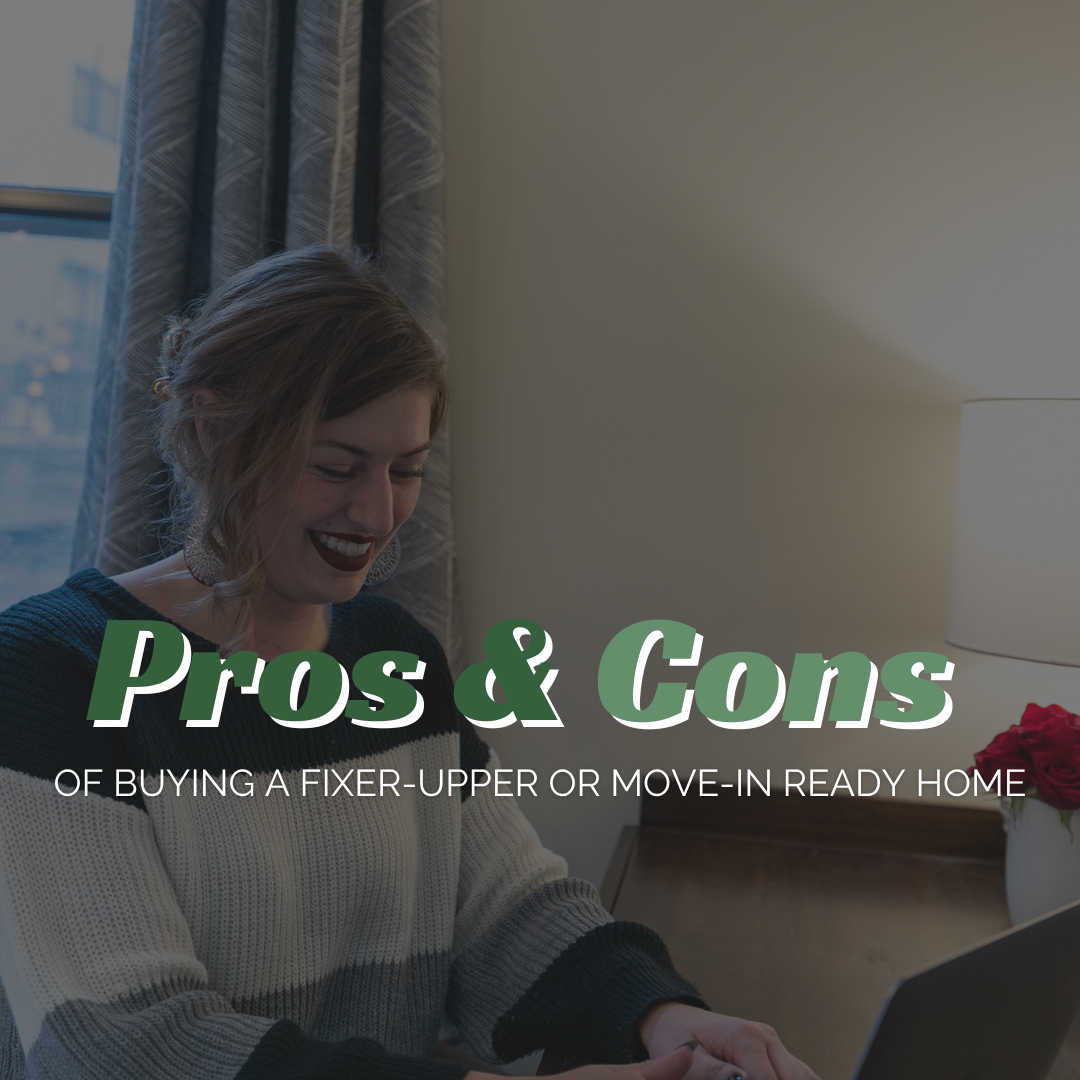Choosing between buying a fixer-upper and a move-in ready home is a significant decision in the real estate world. Your budget plays a crucial role in this choice, and it’s essential to weigh the pros and cons carefully. In this blog, we’ll explore the advantages and disadvantages of decreasing your budget to buy a fixer-upper or increasing it for a move-in ready home.
Pros of Decreasing Your Budget for a Fixer-Upper:
- Lower Purchase Price: Fixer-uppers generally come with a lower initial purchase price, allowing you to enter the real estate market with a smaller budget.
- Investment Opportunity: Renovating a fixer-upper can be a wise investment. With some TLC, you can potentially increase the home’s value and equity, making it a profitable endeavor when you decide to sell.
- Customization: Fixer-uppers provide an opportunity to create your dream home, customizing it to your exact preferences and style.
- Learning Experience: Taking on a fixer-upper can be a valuable learning experience, teaching you about home improvement and construction.
- Potential for Hidden Value: Older homes often have unique features and character that can be restored and add to the property’s charm.
Cons of Decreasing Your Budget for a Fixer-Upper:
- Renovation Costs: The cost of renovations can quickly add up, potentially exceeding your budget. It’s essential to have a thorough inspection and a well-defined renovation plan.
- Time and Effort: Renovating a fixer-upper can be time-consuming and demanding. It might not be the right choice for those with busy schedules or those seeking a quick move.
- Uncertainty: The extent of repairs needed in a fixer-upper may not be fully known until you start working on it, potentially leading to unexpected expenses.
Pros of Increasing Your Budget for a Move-In Ready Home:
- Convenience: Move-in ready homes are ready for occupancy, saving you the time and stress of renovations.
- Predictable Costs: With a move-in ready home, you have a clear idea of the initial cost and can budget accordingly.
- Immediate Comfort: You can start living in your new home right away without the disruptions of ongoing construction.
- Energy Efficiency: Newer homes often come with modern energy-efficient features, potentially leading to lower utility bills.
- Peace of Mind: Move-in ready homes typically come with warranties (if new construction) or fewer maintenance concerns in the short term.
Cons of Increasing Your Budget for a Move-In Ready Home:
- Higher Initial Costs: Move-in ready homes are generally more expensive, requiring a larger budget upfront.
- Limited Customization: You may have fewer opportunities for customization in a move-in ready home compared to a fixer-upper.
- Competition: Move-in ready homes in desirable locations can attract more buyers, potentially leading to a competitive market.
- Resale Value: While move-in ready homes hold their value well, they may not provide the same potential for equity growth as a well-invested fixer-upper.
The choice between buying a fixer-upper and a move-in ready home depends on your budget and personal preferences. As a real estate agent, I always recommend considering your long-term goals and financial situation. Both options have their pros and cons, and the right choice ultimately depends on your unique circumstances and priorities. Whichever path you choose, thorough research, professional guidance, and careful planning are key to a successful real estate investment.

 Facebook
Facebook
 X
X
 Pinterest
Pinterest
 Copy Link
Copy Link


